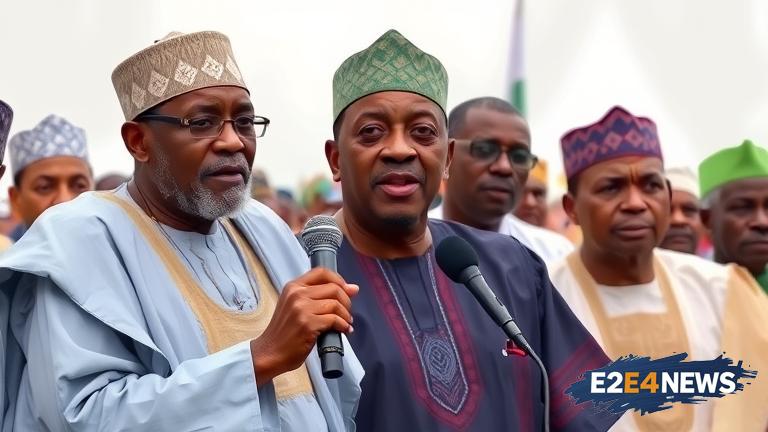The Peoples Democratic Party (PDP) had initially adopted a zoning strategy to rotate the presidency between the north and south. However, this plan was abandoned, leading to Atiku Abubakar’s emergence as the party’s candidate in the 2023 presidential election. According to Abba Moro, a former Minister of Interior, the party’s decision to jettison zoning was a result of the failure of the strategy to achieve its intended purpose. Moro stated that the zoning arrangement was meant to ensure that power rotated between the north and south, but it ultimately led to the emergence of a northern candidate. The PDP had zoned the presidency to the south, but the party’s national convention saw Atiku, a northerner, emerge as the candidate. Moro explained that the party’s delegates from the south voted overwhelmingly for Atiku, despite the zoning arrangement. He noted that the delegates were influenced by various factors, including the candidates’ popularity and their ability to connect with the people. The former minister also stated that the party’s leadership was unable to enforce the zoning arrangement, leading to its collapse. Moro’s revelation has sparked debate within the PDP, with some members calling for a review of the party’s zoning strategy. Others have argued that the party should focus on building a strong and united front, rather than relying on zoning to determine its candidates. The PDP’s experience with zoning has raised questions about the effectiveness of the strategy in promoting national unity and ensuring that power is rotated fairly. Some analysts have argued that zoning can lead to the emergence of weak candidates, who may not have the requisite experience or qualifications to lead the country. Others have noted that zoning can create divisions within parties, as different factions and interest groups vie for power. Despite these challenges, many Nigerians still believe that zoning is a necessary evil, as it helps to promote national unity and ensure that power is rotated fairly. The PDP’s experience with zoning in the 2023 presidential election has highlighted the need for parties to review their strategies and ensure that they are fair, transparent, and effective. As the country prepares for future elections, it is likely that the debate over zoning will continue, with different stakeholders offering their perspectives on the strategy. In the meantime, the PDP will need to regroup and rebuild, following its defeat in the 2023 presidential election. The party will need to assess its strengths and weaknesses, and develop a new strategy that will enable it to connect with Nigerians and win their trust. This may involve a review of the party’s zoning arrangement, as well as its candidate selection process. Ultimately, the PDP’s ability to adapt and evolve will determine its success in future elections. The party’s leaders will need to be proactive and responsive to the needs of Nigerians, and to develop a vision and strategy that will enable the country to achieve its full potential. As Nigeria continues to evolve and grow, it is likely that the political landscape will also change, with new parties and candidates emerging to challenge the status quo. The PDP will need to be prepared to adapt to these changes, and to develop a strategy that will enable it to remain relevant and competitive. In conclusion, the PDP’s experience with zoning in the 2023 presidential election has highlighted the need for parties to review their strategies and ensure that they are fair, transparent, and effective. The party’s ability to adapt and evolve will determine its success in future elections, and its leaders will need to be proactive and responsive to the needs of Nigerians.
